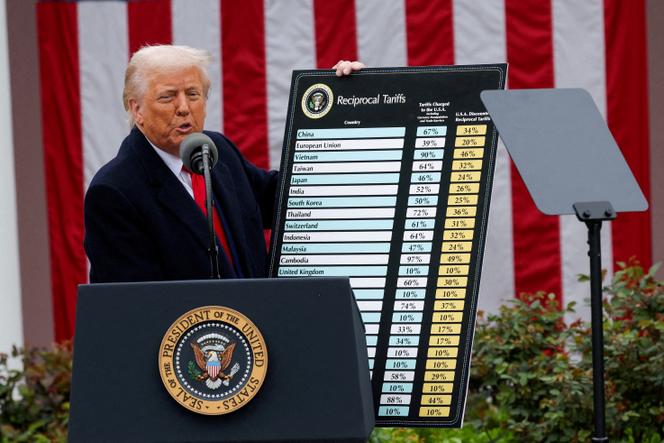


Since Donald Trump's announcement on Wednesday, April 2, of a sharp increase in tariffs on imports from around the world, many of you have asked us, in our live coverage dedicated to this news, about the consequences of these decisions if they are implemented as stated by the American president.
During three live chats on Le Monde's French website, Sébastien Jean, an economics professor at the Conservatoire National des Arts et Métiers, Marie Charrel, deputy head of the Economy department at Le Monde, Pascal Riché, our journalist specializing in economic ideas, and Arnaud Leparmentier, our correspondent in New York, responded to readers' questions. Here are their explanations to the most frequent queries.
Sébastien Jean: Yes, undoubtedly, if the decree is applied as is. The most probable scenario is that the US will apply the tariff on China, which will now be increased by 54%. The real question is at what price this rate will be applied: Apple's temptation will likely be to separate intellectual property (which is charged separately, intangible, and not subject to tariffs) from the physical object, which in this case might only be worth a fraction of the total (which in any case does not include the distributor margin, which is very high for Apple). Assuming this fraction is 20%, the tariff is only 10%. Given the distributor margin, it is very possible that the final price, in this scenario, only increases by 5% to 10%.
You have 82.05% of this article left to read. The rest is for subscribers only.
